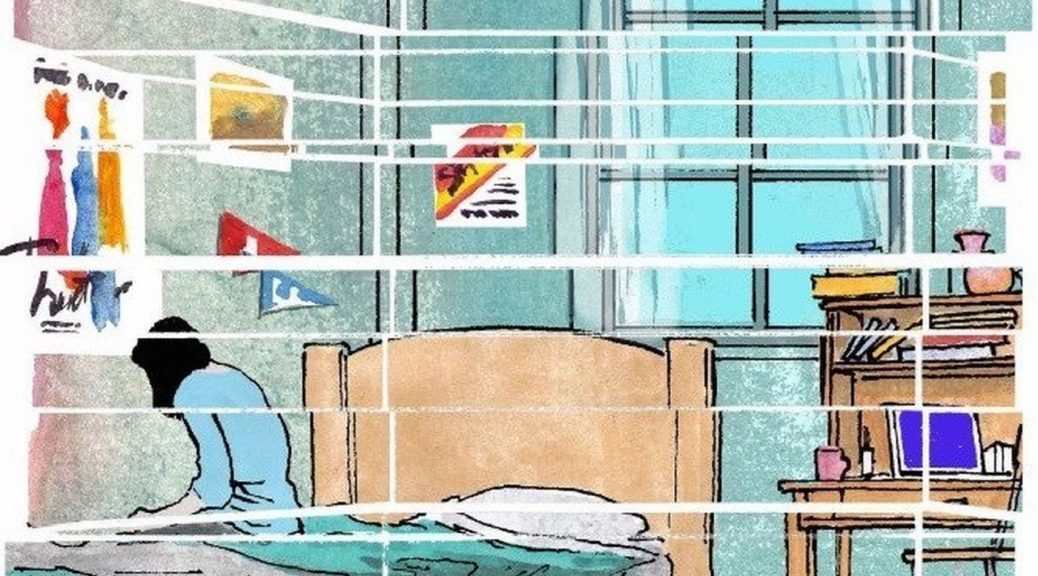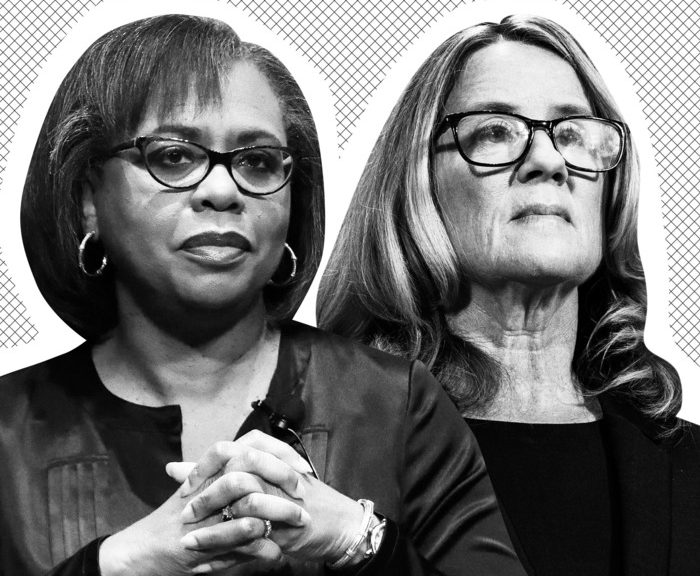By Avery Serven
Introduction:
I think we can all agree that no means no, right? Rape is never okay, and you would never support a movie that promotes that kind of behavior...right? Whether you are aware of it or not, hundreds of films- ranging from 70s sports flicks to movies released as recently as this past summer- depict scenes in which the female protagonist is pressured into kissing, sex, or even a casual dinner date, despite this character having said that she was not interested (usually multiple times). For the purposes of this assignment, I will be looking at heterosexual, cisgender, predominantly white couples in films, as these types of characters happen to appear more frequently in popular films. Although numerous victims of rape are men and/or members of the LGBTQ community, I will focus on female victims shown in American cinema for my argument (National Institute of Justice & Centers for Disease Control & Prevention, Prevalence, Incidence and Consequences of Violence Against Women Survey, 1998).
There appears to be a strong correlation between media consumption and the behavior of the viewers, especially with young people. This correlation shows that exposure to problematic behavior in movies can normalize that behavior for viewers. Some say that society looks to and mirrors the media, while others say that the opposite is true. Either way, toxic masculine behavior has become the norm both on and offscreen in our culture, which perpetuates a cycle of sexual violence and misconduct. This is all evidence as to why filmmakers need to do a better job of depicting consent and relationships in movies. The rampant problem of sexual assault and harassment in our society can only begin to be fixed when the media starts depicting healthy relationships, which it needs to start doing.
Films:
SIXTEEN CANDLES (1984):
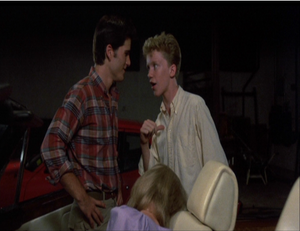
In a scene from this John Hughes cult classic, high school students Jake and Ted discuss Jake’s girlfriend, who is passed out at a party (Filucci, 2018). Throughout the conversation, they use degrading language, referring to girls as “bitches” and “pieces of ass.” Jake says: “Shit, I got Caroline in the bedroom right now passed out cold. I could violate her ten different ways if I wanted to.” Jake then offers up Caroline to Ted, telling him he can take her home (YouTube, 2008). At first Ted says he is not personally interested in taking the unconscious Caroline home, but it later becomes clear that they do end up having sex (neither of them remembers it). At the end of the film, they kiss. In this situation it is clear that Caroline is not consenting to anything with either of the boys, regardless of whether or not one of them is her boyfriend, as she is incapacitated and unable to give consent. Jake, however, seems to think that he can auction his girlfriend off to Ted, telling him that he can take her as long as he makes sure he doesn’t “leave her in some parking lot somewhere” (Filucci, 2018). This is obviously problematic for a lot of reasons, but most importantly, Caroline falls for Ted at the end. This is sending the message that his sexual assault was not only okay, but also made her fall for him. What the hell, John Hughes?
THE EMPIRE STRIKES BACK (1980):

In one of the most famous scenes from the ever popular Star Wars franchise, Princess Leia and Han Solo kiss on their spaceship. Prior to the kiss, Leia is trying to fix a control panel, while Han continues to try to help her even though she has stated that she does not want help. He tells her she could “be a little nicer” and claims that sometimes she must “think [he] is alright.” He then starts massaging her hand, to which she asks him to stop repeatedly. He says that she likes him because he is a scoundrel. When she replies to tell him that she likes nice men, which he is not, he interrupts her and kisses her while she is backed up against a wall (YouTube, 2015). Han does all of this despite the fact that Leia has told him multiple times up until then that she is not interested. During this exchange, Leia looks nervous and on edge. After this whole ordeal, she falls for him and they stay together (Wong, 2016). This interaction begs viewers to take a closer look at the characters in this franchise as a whole. Han Solo is a role model, the hero that young boys look up to. Princess Leia is supposed to be a feminist symbol of a strong female character, but a quick google search of ‘Han Leia rape’ results in countless fanfictions depicting Leia as a sex slave to be used at Han’s disposal. The fact that one of the most world-renowned film franchises condones this kind of aggression and “playing hard to get” ideology is extremely disappointing, to say the least.
THE NOTEBOOK (2004):
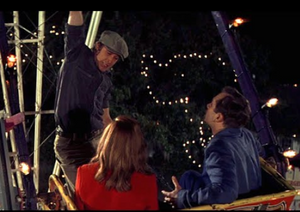
In a scene from the hit romance film The Notebook, Noah, played by Ryan Gosling, asks Allie, played by Rachel McAdams, out in a pretty unconventional way. She is on a date with someone else when he jumps onto her cart, only to be met with her screaming at him to “get off [her].” He does not listen, and instead tells Allie he would like to take her out. He gets out and hangs from a spindle and asks if she will go out with him, to which she replies no. Noah asks her why and she says “I don’t know, because I don’t want to.” He tells her she leaves him no other choice and drops an arm. He asks her again, saying he won’t get down until she agrees. She hurriedly agrees, and he says “don’t do me any favors.” Noah proceeds to make her say, multiple times, that she truly wants to go out with him. He then responds by saying “alright, alright, we’ll go out” (YouTube, 2008). This kind of coercion and persistence, disguised by a popular romance movie as “charming and desirable,” is an issue that many women have to deal with daily. Even other media outlets normalize this kind of behavior, like a Seventeen article that claims that Noah “wooed Allie on the ferris wheel” (Devoe, 2016). No one should ever feel forced to go on a date with someone they don’t want to, even if that person is Ryan Gosling!
ROCKY (1976):
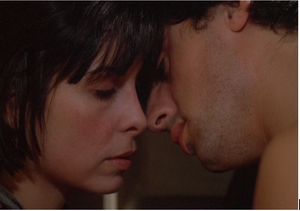
Rocky, a film about an underdog boxer who trains to take on the world heavyweight champion, has a very problematic kiss scene between the two main characters, Adrian and Rocky. Adrian is at Rocky’s house and she tells him she wants to contact her brother because he might be worried. Rocky does not let her, and instead yells to her brother out the window. After that, Adrian repeatedly says she does not belong here (meaning Rocky's home), and he tells her it’s okay. She then goes on to explain that she does not know him well enough, and that she has never been alone in a man’s apartment. She repeats that she is uncomfortable and tries to leave, but Rocky blocks the door and corners her. He then takes off her glasses and hat even though she has been silent since he cornered her. He says that he wants to kiss her, but that she does not have to kiss him back if she doesn’t want to. He starts kissing her on the neck and even though she is clearly uncomfortable, she eventually kisses him back (YouTube, 2017). This attitude of “knowing what she wants better than she does” is portrayed quite often in movies, as well as everyday life. Even though Adrian never explicitly says that she does not want to kiss or have sex with him, she does say that she shouldn’t be there, that she is uncomfortable, and that she wants to leave. Additionally, the nonverbal cues in this scene are pretty clear from the start. Awesome message for a Best Picture winner, right?
Studies:
As previously seen, many popular films have clear examples of sexual harassment, coercion, assault, and violence. Whether it be a comedic, romance, or sports film, the message is clear- keep trying until you get her to agree, regardless of how she feels about it. That’s what women see as romantic. Many viewers can probably look at this and say “Ok, but I see these messages in movies and am able to take them with a grain of salt.” However, research on our absorption of the media shows differently.
Based on research from the International Journal of Humanities and Social Science Invention, the mass media consumes a very high proportion of our free time. In 2014, they found that people spend, on average, 25 hours per week consuming media. This includes watching TV and movies, as well as reading magazines and newspapers (Mehraj, Bhat, 2014).
According to more research done for the International Journal of Humanities and Social Science Invention, young people are the most impressionable with the media (Mehraj, Bhat, 2014). This is interesting when compared to statistics about the main perpetrators of sexual violence from RAINN, the Rape, Abuse & Incest National Network. Stats from 2015 state that 25% of perpetrators are ages 21-29, while 9% are 18-20, and 15% are 17 or younger. Almost half of the total number of perpetrators are 29 or under (Department of Justice, Office of Justice Programs, Bureau of Justice Statistics, Female Victims of Sexual Violence, 2013). I personally do not think this correlation is coincidental, as young people are more prone to the media’s messages, as well as sexual violence.
The International Journal of Humanities and Social Science Invention also found that “induced fear and phobias” can result from media consumption. Additionally, the media (video games in particular) can create a blurred line between reality and fantasy, as well as confusion between positive and negative role models (Mehraj, Bhat, 2014). After all, how are we supposed to feel after the male hero that we have been rooting for the whole time rapes the love interest?
They also looked at exposure to media and violence. The conclusion was that “visiting hate and satanic sites are associated with significantly elevated odds of violent behavior perpetration” (Mehraj, Bhat, 2014). Additionally, they found that “exposure to media violence does not affect all children in the same way” (Mehraj, Bhat, 2014). However, there was enough evidence to conclude that violent media viewing correlated with the numbing of “emotional response” (Mehraj, Bhat, 2014). In a shocking discovery, fMRI studies showed that “exposure to TV violence activates brain regions that regulate emotion, arousal and...episodic memory” (Mehraj, Bhat, 2014). Also, extensive viewing was found to lead to viewers storing a “large number of aggressive scripts...that end up influencing behavior” in “long-term memory” (Mehraj, Bhat, 2014). Over time, there is a “lower emotional impact” due to media violence exposure (Mehraj, Bhat, 2014).
One official conclusion of the study was the following: “We...found that media is playing both constructive as well as destructive roles; on one hand it has lots of advantages, but on the other hand it has lots of disadvantages and at the end it’s up to the individual and society to decide which ones to use” (Mehraj, Bhat, 2014).
Sexual Assault Statistics:
On Campus-
On college campuses rape and assault are extremely heightened issues; many women on college campuses regularly feel unsafe. According to RAINN, “among undergraduate students, 23.1% of females and 5.4% of males experience rape or sexual assault through physical force, violence, or incapacitation” (Association of American Universities (AAU), 2015).
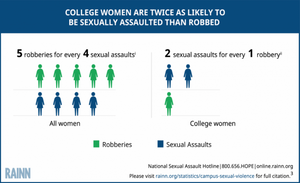
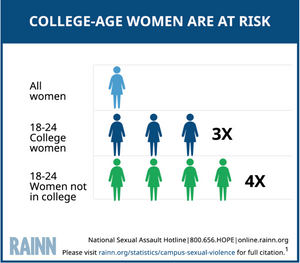
In the United States-
The fact that college campuses are a hotbed for sexual assault does not mean that it doesn’t occur everywhere in our country. According to RAINN, “on average, there are 321,500 victims (age 12 or older) of rape and sexual assault each year in the United States” (Department of Justice, Office of Justice Programs, Bureau of Justice Statistics, National Crime Victimization Survey, 2015). Additionally, “94% of women who are raped experience symptoms of post-traumatic stress disorder during the two weeks following the rape” (Journal of Traumatic Stress, 1992, p. 455-475). As seen in the graphic below, many victims are under the age of 30 (Department of Justice, Office of Justice Programs, Bureau of Justice Statistics, Sex Offenses and Offenders, 1997).
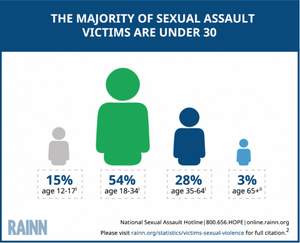
Conclusion:
Through a look at violence against women and the supposed ‘blurred lines’ of consent in film, we can conclude that there are countless examples of movies normalizing this kind of behavior. The attitude of not giving up until a woman gives in, which is prevalent in many films, endorses coercion and even assault. Movies promote the idea that women are “asking for it” and don’t want men to wait for consent, because that’s attractive. This idea is often perpetuated by male filmmakers, having men who view the films thinking that’s what women want. The promotion of this attitude about consent in the mass media has a direct impact on viewers, who consume harmful messages and act based on the norms that these films perpetuate.
From these statistics and studies, we can conclude that the general public, especially young people, consume a large amount of media on a regular basis and are easily influenced by it. Violent media can also numb emotional response in viewers. Young men and boys view violent or aggressive sexual behavior in film and the behavior becomes normalized, which would explain the prevalence of this behavior in our everyday lives, especially among young people. Most of the perpetrators of sexual violence are young (under 30), while the victims are often also young people; this makes sense considering these are the people most susceptible to the media.
Hope for the Future:
Luckily, the media landscape does appear to be changing. In the classic film Thelma and Louise, there is a scene in which JD wants to have sex with Thelma but she does not want to. He stops and respects her wishes. In another popular movie, 10 Things I Hate About You, Kat is very drunk in one scene and tries to kiss Patrick, but he does not let her as he does not want to take advantage of her in her state (Vallabhjee, 2016). Although we have a long way to go, some films do treat consent the right way and show a positive depiction of sexual behavior. Additionally, with the #MeToo movement and all of the attention on sexual assault and harassment, it should become easier for viewers to recognize this kind of behavior in films. I personally believe the landscape is changing drastically, and I have hope for the future of the media.
For More Information on the Topic:
- RAINN (Rape, Abuse & Incest National Network): rainn.org, 800-656-HOPE
- Common Sense Media: commonsensemedia.org
- Teach Consent: teachconsent.org
- The Anti-Violence Project: antiviolenceproject.org

